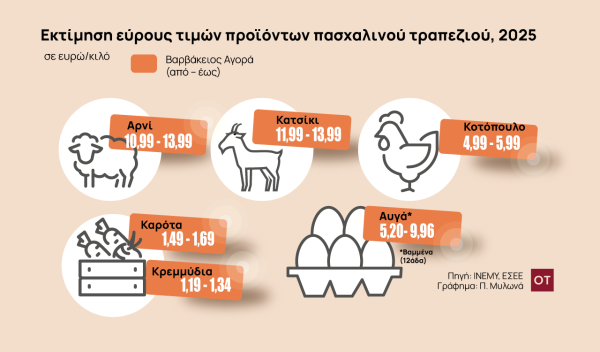
Greek households experienced a significant 22.5% drop in their wealth in comparison to the pre-crisis levels in 2009 in the Eurozone, in contrast to the other members of the economic bloc who witnessed a 50% rise in wealth value, according to the European Central Bank’s (ECB) experimental data.
Greek household wealth was estimated just shy of €1 trillion (€968.6 billion) euros in the 3rd quarter of 2009, a figure that plummeted to €687.2 billion in the 2nd quarter of 2017, a whopping 29% decrease in 7 years.
A positive reversal was recorded after the end of the COVID pandemic lockdowns, which froze all construction activity till the 3rd quarter of 2020, as Greek households witnessed a substantial rise in wealth to €798.8 billion in the 2nd quarter of 2023, with property largely accounting for the wealth uptick.
The largest share (€473.2 billion) of the total wealth of Greeks is attributed to real estate, followed by deposits (€159.8 billion) and businesses (€110.5 billion). Small amounts originate from shares in companies listed on the Stock Exchange (€11.5 billion), investment funds (€ 11.4 billion), and debt securities (€6 billion).
In terms of wealth disparity, the data indicates that the wealthiest 5% of Greek households currently hold 33.6% of the total wealth, a slight increase compared to 2009 (32.9%).
Conversely, the poorest 50% of households possess 10.9%, also recording a small rise compared to 2009 (10.8%).
In the entire Εurozone, however, inequalities are significantly greater, as the richest 5% now possess 43% of the total wealth, while the poorest 50% hold only 5.3%.
Source: tovima.com
Latest News

Greek Government Reissues 10-Year Bond Auction for €200 Million
The amount to be auctioned will be up to 200 million euros, and the settlement date is set for Friday, April 25, 2025 (T+5)

Greece Defines Continental Shelf Limits and Maritime Zones in Landmark EU Document
The Maritime Spatial Planning (MSP) framework represents a comprehensive approach to spatial planning and is crucial for the successful development of a blue and circular economy

EU Praises Greece’s RRF Progress as Revised Recovery Plan Nears Completion
Athens is preparing to submit its revised “Greece 2.0” Recovery and Resilience Plan after Easter, with a slight delay from the initial timeline but with the European Commission’s approval.

Greek €200M 10Y Bond to be Issued on April 16
The 3.875% fixed-interest-rate bond matures on March 12, 2029, and will be issued in dematerialized form. According to PDMA, the goal of the re-issuance is to meet investor demand and to enhance liquidity in the secondary bond market.

German Ambassador to Greece Talks Ukraine, Rise of Far Right & Tariffs at Delphi Economic Forum X
Commenting on the political developments in his country, the German Ambassador stressed that it was clear the rapid formation of a new government was imperative, as the expectations across Europe showed.

Athens to Return Confiscated License Plates Ahead of Easter Holiday
Cases involving court orders will also be excluded from this measure.

Servicers: How More Properties Could Enter the Greek Market
Buying or renting a home is out of reach for many in Greece. Servicers propose faster processes and incentives to boost property supply and ease the housing crisis.

Greek Easter 2025: Price Hikes on Lamb, Eggs & Sweets
According to the Greek Consumers’ Institute, hosting an Easter dinner for eight now costs approximately €361.95 — an increase of €11 compared to 2024.

FM Gerapetritis Calls for Unified EU Response to Global Crises at EU Council
"Europe is navigating through unprecedented crises — wars, humanitarian disasters, climate emergencies," he stated.

Holy Week Store Hours in Greece
Retail stores across Greece are now operating on extended holiday hours for Holy Week, following their Sunday opening on April 13. The move aims to accommodate consumers ahead of Easter, but merchants remain cautious amid sluggish market activity.








































 Αριθμός Πιστοποίησης
Αριθμός Πιστοποίησης